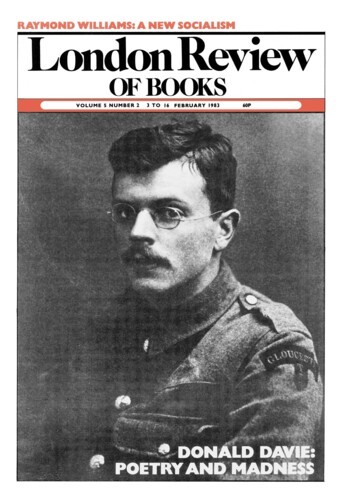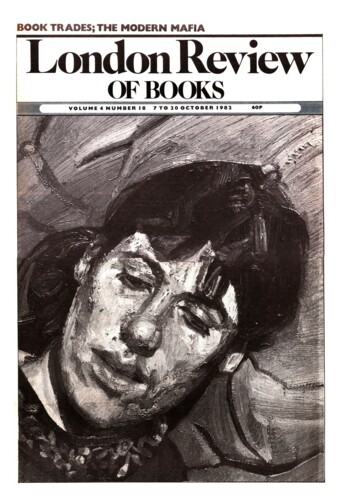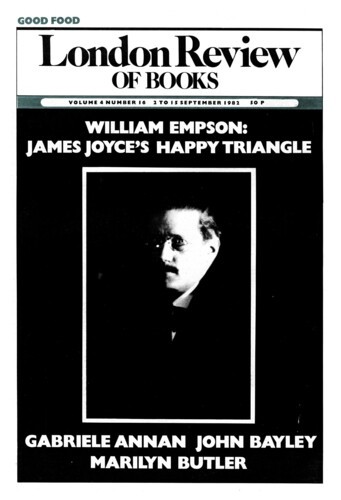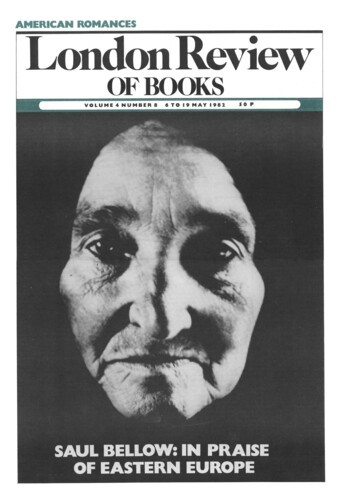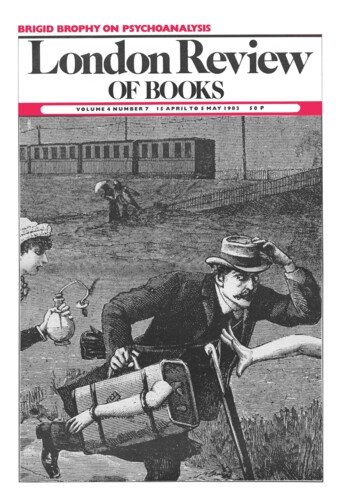Enthusiasts
Anita Brookner, 3 February 1983
Glyn Hughes’s novel, Where I used to play on the green, won both the Guardian Fiction Prize and the David Higham Fiction Prize in 1982, yet it received not a tenth of the publicity awarded to winners of the Booker and the Whitbread. This is a pity, for it is a fine achievement, although too dour a story to command affection in the media. It reminds us not only that the past is a foreign country but that England, too, is a foreign country and perhaps never more so than at times and in places which we think we know fairly well. Those whose images of 18th-century England have been fashioned by the painters of that time and who are accustomed to the smiling faces of a well-fed squirearchy, looking ineffably satisfied with the onward march of progress and its own contribution to the wealth of nations, will receive a shock when they read Glyn Hughes’s account of the coming of Wesleyanism to the poverty-stricken weavers of Yorkshire and the madness and suffering that attended it. His characters are historically real, although perhaps not historically important: William Grimshaw, the fanatical wandering preacher, and his associates, early martyrs – the word is not too strong – in the cause of the simplest and most primitive of trade unions; a cast of six-year-old children sent to work in the pits, of narrow-minded cloth manufacturers on the brink of becoming the new rich; and an illiterate and starving populace at the mercy of every restriction laid on it in the name of ‘enthusiasm’.
